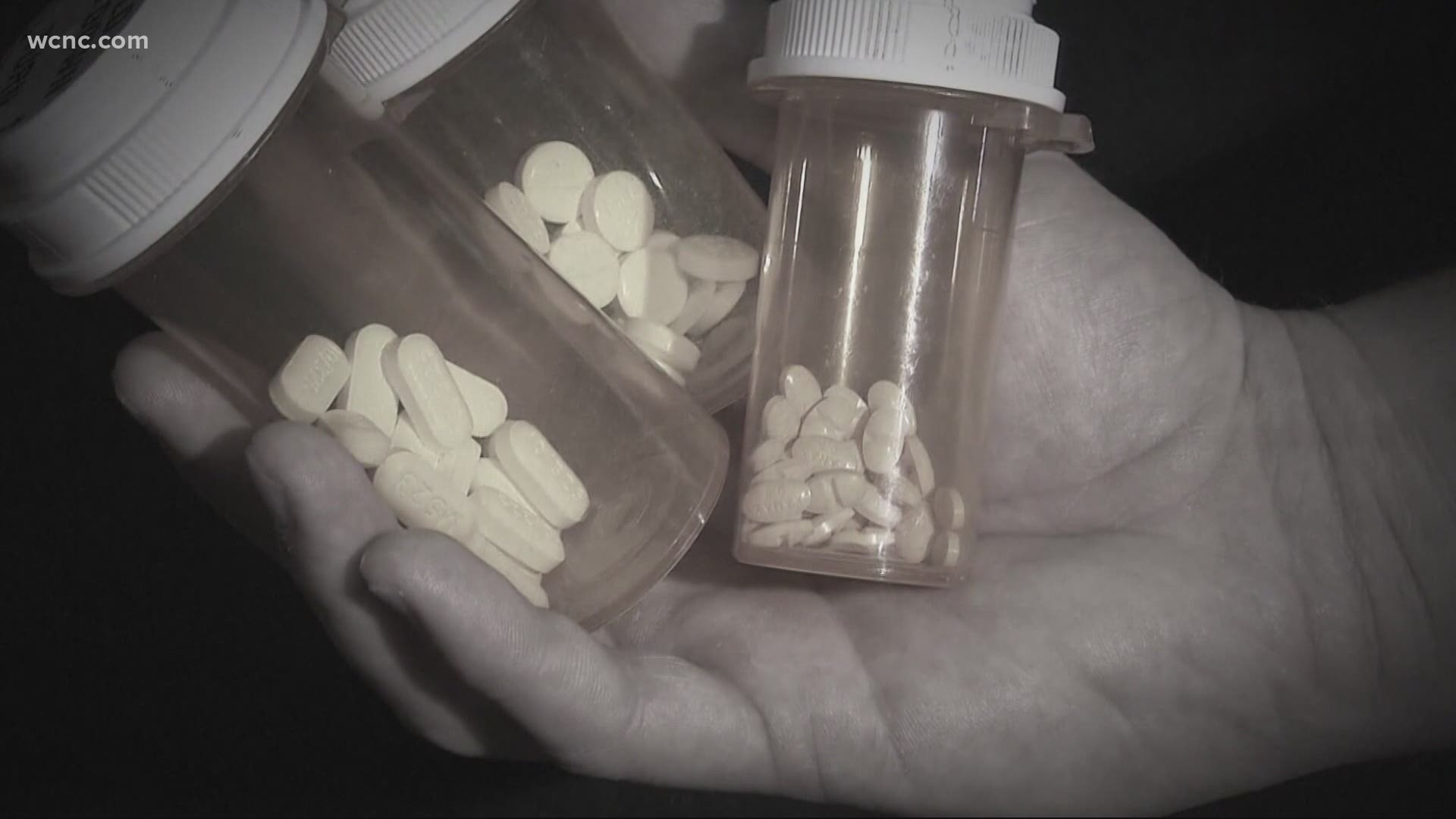CHARLOTTE, N.C. — Although the coronavirus has consumed most of our lives in the past year, the opioid crisis has been going on in the background and it appears the pandemic may have made it worse.
The opioid epidemic has been a problem for years, but North Carolina had been making strides in lowering the amount of opioid overdose emergency visits over the past few years, until last year, when it reached a 10-year high.
"It’s been difficult to watch this happen, to watch people’s lives get torn apart as a result of the pandemic," Mary Ward, president of Mcleod Addictive Disease Center, said.
Ward said they’ve seen the emotional and mental toll of the pandemic firsthand.
“We’re seeing an uptick in depression and anxiety, as a result of the pandemic," Ward said. "Sometimes they turn to the use of substances.”
According to the North Carolina Department of Health, emergency department visits from opioid overdoses in the state had been going down since 2017 but shot back up to a 10-year high in 2020.
“The opioid crisis has rolled on throughout the pandemic, in some respects I think it's easy to forget about that," Dr. Pamela Wright-Etter, deputy chief medical officer at Cardinal Innovations Healthcare, said.
Wright-Etter said the data doesn’t surprise her.
“Not really," Wright-Etter said. "I think with increasing isolation and members feeling hopeless, people just revert to whatever they’ve been using in the past."
RELATED: 'There is resilience' | Prioritizing mental health one year after first reported COVID-19 case in NC
“We realized we had to do something," Wright-Etter said.
“Narcan reverses the overdose situation and it keeps someone from dying,” Ward said.
Ward said while Narcan isn’t a permanent treatment, it does give people another chance.
“It is certainly something that allows people to get to us for treatment," Ward said.
SAMHSA’s National Helpline is a free, confidential, 24/7, 365-day-a-year treatment referral and information service (in English and Spanish) for individuals and families facing mental and/or substance use disorders.

